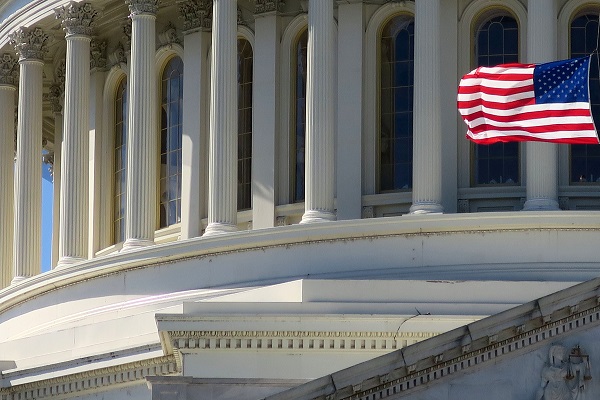 A mark-up of the Retirement Enhancement and Savings Act would signal that Congress is finally putting its money where its mouth is on retirement security. (Photo: Mike Scarcella/ALM)
A mark-up of the Retirement Enhancement and Savings Act would signal that Congress is finally putting its money where its mouth is on retirement security. (Photo: Mike Scarcella/ALM)
The House Ways and Means Committee may mark up the Retirement Enhancement and Savings Act as early as next week, according to sources speaking on background. Inquiries to the Committee's staff were not returned before press time.
If true, it would be a new reaching point for RESA, which was first introduced in the Senate in the 114th Congress. The bill was voted unanimously out of the Senate Finance Committee in November of 2016.
Reintroduced in both chambers of Congress in February, RESA is an expansive retirement bill that would, among other things, do the following:
- allow small employers to join Open Multiple Employer Plans
- create an annuity selection safe harbor for employers that sponsor retirement plans
- expand tax credits for sponsoring new plans
- allow retirees to continue investing in IRAs after the existing age 70 ½ cap
Supporters of RESA, which has wide bipartisan and bicameral support, had reason for hoping it would be included in previous spending packages. But energy for the bill was crowded out by more contentious funding debates.
“Clearly there is bipartisan support for RESA, and a demand for the kinds of things that RESA does,” said Phil Waldeck, president of Prudential Retirement, in an interview.
Waldeck could not confirm that lawmakers are preparing a mark-up of RESA, but the speculation comes as Prudential has released new survey data underscoring American workers' insecurity over their retirement prospects, particularly among those working for small employers.
Nearly 7 in 10 of all respondents report concerns over having enough money saved for retirement, and only 39 percent working for small businesses say their employer provides the benefits needed to feel financially secure.
“This survey shows that Americans are clearly concerned about their financial security,” said Waldeck. “It shows that Americans expect to be stressed going forward, and they are also stressed about their children's financial security. This represents a clear diagnosis of how real Americans are experiencing their financial insecurity. And that naturally connects to why financial wellness is so important to individuals, to employers and to society. Putting it all together, Americans are financially insecure and they are worried about it.”
According to the Bureau of Labor Statistics, only half of Americans that work for an employer with fewer than 50 employees have access to a workplace savings plan; 33 percent of Americans employed by companies with 50 to 100 workers are without access; and nearly 20 percent employed at companies with 100 to 500 workers are without access.
Respondents to Prudential's survey are overwhelmingly in support of Congress expanding access to retirement plans.
The Labor Department is in the midst of finalizing a rule that attempts to expand access in the small plan market.
But critics of the proposed version of the rule contend that it is too narrow because it expressly prohibits existing retirement plan providers from sponsoring Open MEPs. Sponsorship of MEPs would be limited to Professional Employer Organizations or local Chambers of Commerce.
But Labor's proposed rule would be superseded if the proposed version of RESA is ultimately passed. The bill would lift existing Labor Department guidance that requires employers to share a common nexus, such as affiliation with a trade group, to benefit from the economies of scale in joining a multiple employer plan.
Few, if any, in the retirement services industry think Open MEPs would be a panacea for closing the retirement plan access gap among smaller employers.
Still, there is consensus that Open MEPs could have some impact over time, as the vehicles would leverage the workplace and the efficiencies of automatic enrollment and deferral remittances.
“The workplace is where it happens,” said Waldeck of utilizing the greatest efficiencies for improving retirement readiness. “Whether RESA happens in the short term or the longer term, there is a real opportunity in terms of improving our impact. Even without RESA, however, there is much that employers and retirement providers like Prudential can do to help Americans become more financially secure.”
Increased public policy spotlight on retirement issues is promising. But a mark-up of RESA would signal that Congress is finally putting its money where its mouth is on retirement security.
“As a society we need to get better at this,” said Waldeck. “We need to make it easier for Americans to participate in workplace programs that can deliver financial security over time. The workplace is the best venue to make an impact. I think if we can get better at this, it will strengthen the fabric of our society.”
READ MORE:
4 retirement reform bills you need to know about
With Social Security 2100 Act, Rep. Larson says get reform process right, don't rush
Union pensions: Will Congress kick the can on a solution?
© 2025 ALM Global, LLC, All Rights Reserved. Request academic re-use from www.copyright.com. All other uses, submit a request to [email protected]. For more information visit Asset & Logo Licensing.








